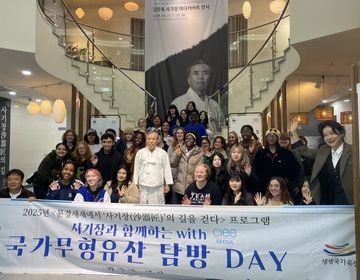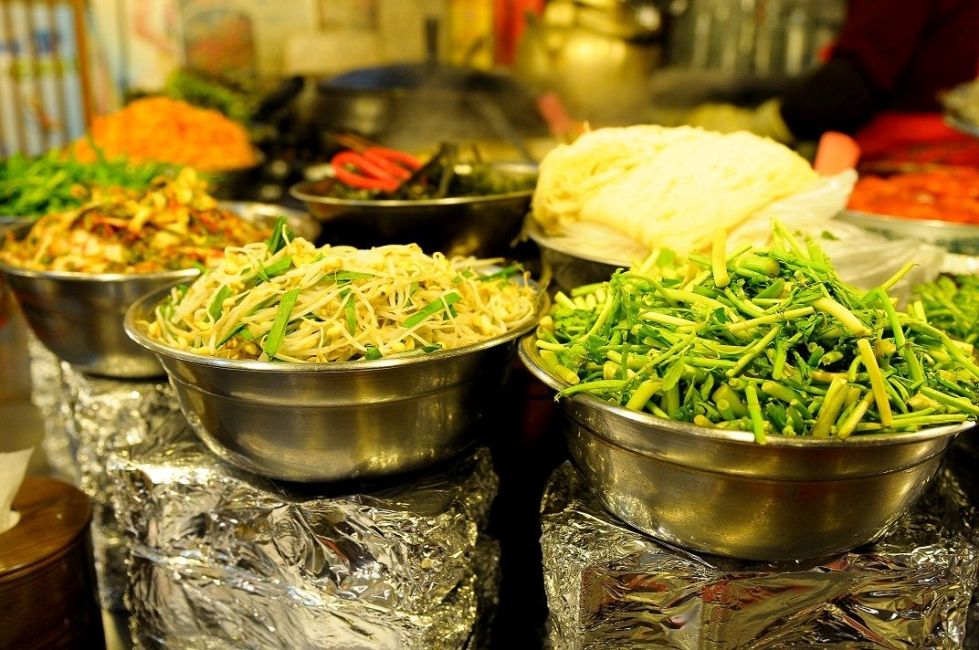Tips for Living in Korea with Diabetes
Living in Korea is an adjustment in general, but living in Korea with diabetes can be extremely hard. With noodle dishes and rice in basically every meal, it seems like carb central. But there are a few tips and trips to make living with diabetes much easier.
1. Trial and Error
I think this is the most important one. Since there are so many shops in Korea that are family owned, you won't have easy access to a nutrition information chart like you would normally. So how are you supposed to know how to do your carb to insulin ratio? The answer is this. You don't. It's extremely hard to guess HOW to really gauge the number of carbs that are going to be in a specific dish, especially if you don't know how much sugar or carbs are included in a specific sauce that may be included with the dish as well. It's super difficult, but you just have to do your best. If your numbers go high after eating it, then you know next time to make sure to adjust accordingly, if you go low, make sure you do less insulin next time you eat that specific dish. You simply have to do your best and find what works for you and what dishes seem to suit your taste and carb intake.
2. Always carry a snack/juice around
Although Korea tends to have places open 24/7 like convenience stores and such, it's always better to have a quick snack or juice with you to get your sugars up in a hurry, especially if you are somewhere out to dinner or in a place where it would be difficult to find a place to purchase a snack.
3. Keep in mind the travel and exercise
If you're going to be in Seoul, be prepared. Seoul is known as the city of walking, and boy do you do a lot of it. Getting from the SK Global House dorms to Sinchon is already around a 15 minute walk in itself, which is not even including whether you want to walk or use transportation. This is up to you, but regardless you will be doing a lot of walking, and will be getting lots of exercise. With this, you'll want to be aware of an active time ratio. If you know you'll be doing a big hike or a long walk, I recommend turning on the active time ratio if you are using a pump. Be aware that your sugars may go lower because of your activity, and prepare accordingly with snacks as stated above.
4. Try and memorize portion sizings
While I stated earlier that meals tend to be trial and error, you can have a lot of help when it comes to estimating carbs through memorizing portion sizings. Memorize how much one cup of rice looks like, or one cup of fruits and veggies, how many carbs may be in a glass of soju, etc. This can help you immensely when estimating your carb intake during meals or snacks.
5. Bring extra supplies
One thing that I thought was extremely helpful was to bring extra supplies to Korea beforehand. Whether it be insulin pens, reservoirs for a pump, test strips, lancets, etc. Bring at least a months more supply just in case something goes wrong, and keep that supply on your carry on in case of emergencies. I also know that with some meters, the test strips are quite specific, so bring more than you would imagine you would need. If you usually test your blood sugar 3 times a day, bring enough to where you would be able to test it 4 times a day at least. Once again, a months more is recommended.
6. Don't be afraid to ask for help
My final tip is to not be afraid to ask for help. The CIEE staff is always there to help you and is great with helping prepare meals that will accommodate the specific eating requirements that you need. Also if you ever need to go see a diabetes specialist, there are some places in Seoul that will see foreigners, and even if they don't, the CIEE staff is more than willing to come and help translate for you. Also, at some pharmacy's I have seen lancets for meters as well as refills for test strips, so supplies are not out of reach in Korea.
Living with diabetes in Korea can be super hard, but it is super manageable. Once you get into a routine it will seem like a breeze that you didn't think you needed to worry about at all! Good luck, and happy pricking!!
Related Posts

Soul Searching in Seoul: Everything I Learned and What I Wish I Knew
Before I start crafting my “study abroad changed me” answers for friends and family, here are the practical things I wish I’d known. The things that would’ve saved me time... keep reading

A Seoul Escape to Bukhansan
Get out of the hustle and bustle of Seoul and head to the peak of Bukhansan!

My Time in South Korea Attending Yonsei University: A Life-Changing Chapter
By: Zahrraa Al-Salman Studying abroad had always been a dream of mine—an opportunity to step outside of my comfort zone, immerse myself in a new culture, and deepen my understanding... keep reading

